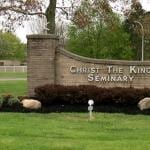More houses of worship are encouraging pastors to train church personnel how to deal with an active shooter. This report tells of one effort in Pittsburgh:
Recent events have only made the need more urgent. From the AP:
The shootings this month killed more than 30 people at an El Paso Walmart and Dayton, Ohio entertainment district. But gunmen have also targeted houses of worships in recent years, includinga church in rural Sutherland Springs, Texas, where more than two dozen people were shot dead in 2017.
The anxiety of one mass shooting after another has led some churches to start training and arming their worshippers with guns. Not all security experts support this approach, but it has gained momentum as congregations across the country grapple with how to secure spaces where welcoming strangers is a religious practice.
“Ten years ago, this industry was not a thing,” said David Riggall, a Texas police officer whose company trains churchgoers to volunteer as security guards. “I mean, sanctuary means a safe place.”
In 1993, Doug Walker said security wasn’t at the fore of his mind when, as a recent Baptist seminary graduate, he founded Fellowship of the Parks church in Fort Worth. But six years later, after a gunman killed seven people and took his own life at another church in the Texas city, the pastor said his thinking changed.
One company that helps churches plan and design facilities offered this information:
Chuck Chadwick, founder and president of Security Services, Denton County, Texas, trains volunteers from church communities willing to play a bigger role in protecting their worship space. They could be anyone from ushers, to greeters, to people who work with the children’s programs. “Being unprepared for an active shooter situation would certainly lead to a situation where massive loss of life might be possible if the shooter goes unchecked,” says Chadwick. “Preparation would also certainly lead to mitigating the damage a shooter could do. Dialing 911 and waiting is a fool’s game. Quick thinking and a plan of action are great, but having someone who is trained and capable of stopping the shooter already at the church is what we call an Initial Responder.’ These incidents are over in just a few minutes.”
While Chadwick admits that having an active law enforcement officer at a church is preferable, he knows the cost is prohibitive for most churches since off-duty police officers generally run $40-$75 dollars an hour. He offers the Gatekeeper Program, which covers much the same training as law enforcement in an abbreviated fashion. Over the years, the six-day program has trained and certified hundreds of members of church security teams. “It trains and certifies participants in the legal use of force, conflict resolution, pastoral protection, hand-to- hand defensive tactics, handcuffing, intermediate weapons and firearms,” Chadwick says.
“We teach from a perspective of protecting the church pastors and congregation. All of our instructors have served Christian ministries as personal protection officers for many years.” Protocols in Place Every house of worship should, first, have a comprehensive risk assessment done by a competent security professional which would include an assessment of the physical space; a review of local potential threats and hazards such as known extremist groups or other known agitators in the area, researching possible threatening social media posts, identifying prior “bad actors” in the area, interviews of clergy and staff on past events and so on.












